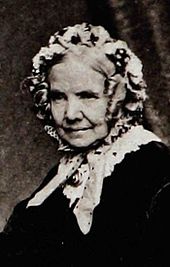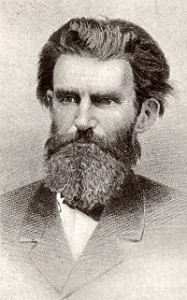Just As I Am
Just as I am, without one plea,
But that Thy blood was shed for me,
And that Thou bidst me come to Thee,
O Lamb of God, I come, I come.
Just as I am, though tossed about,
With many a conflict, many a doubt,
Fightings within and fears without,
O Lamb of God, I come, I come.
Just as I am, Thou wilt receive,
Wilt welcome, pardon, cleanse, relieve,
Because Thy promise I believe,
O Lamb of God, I come, I come.
Just as I am – Thy love unknown
Has broken every barrier down!
Now to be Thine, yea, Thine alone,
O Lamb of God, I come, I come.

Charlotte Elliott of Brighton, England, was embittered by her ill-health and disability, and felt that “If God loved me, He would not have treated me this way.” A Swiss minister, Dr. Cesar Malan, visited Charlotte’s family, hoping to help her. Over dinner, Charlotte had a violent outburst against God and her family, who, embarrassed, left the room. Dr. Malan then said to Charlotte, “You are tired of yourself, aren’t you? You are holding to your hate and anger because you have nothing else in the world to cling to.” When Charlotte asked, “What is your cure?” Dr. Malan replied, “The faith you are trying to despise.” Charlotte’s heart softened as the conversation continued, until she finally asked, “If I wanted to become a Christian and to share the peace and joy you possess, what would I do?” Dr. Malan answered, “You would come to God just as you are now, with your fightings and fears, hates and loves, pride and shame.” Charlotte did come to God, just as she was, and her heart was changed that day – May 9, 1822. Share on X

In 1836, Charlotte wrote a poem that was sold across England, to help her brother, Rev. Henry Elliott, raise funds for a school for the children of poor clergymen. She based it on John 6:37 – “He who comes to Me I will in no wise cast out.” Set to music by William Bradbury, that poem, “Just As I Am”, has become the world’s most famous Christian invitational hymn, as many know from hearing it live or televised in Billy Graham crusade meetings. Charlotte lived to be 82 and wrote about 150 hymns, though she never had good health. After her death, her loved ones discovered over 1000 letters she had kept, from people who had written her in gratitude for the way “Just As I Am” had affected their lives.
Are you holding to your hate and anger because you have nothing else in the world to cling to? Share on XWords: Charlotte Elliott Music: William Bradbury
Reference: Robert J. Morgan, Then Sings My Soul
YouTube – ENJOY S.A. Song Book # 293 Section: The Gospel – Response






